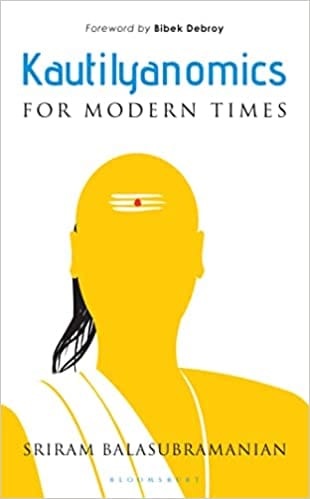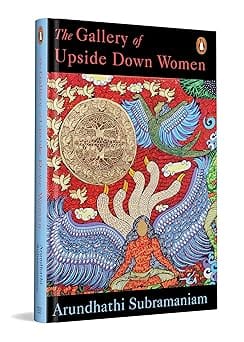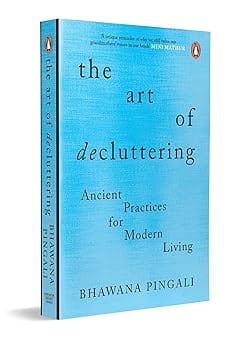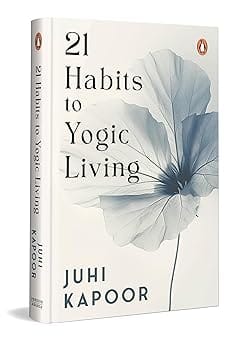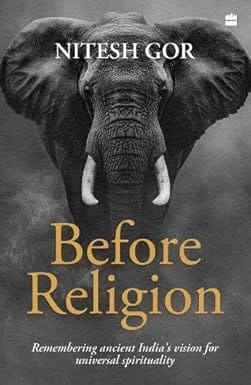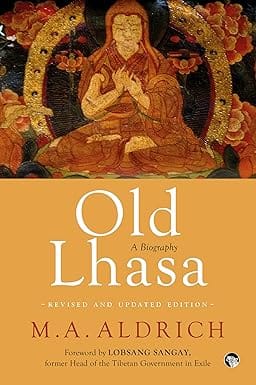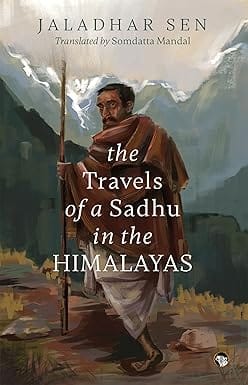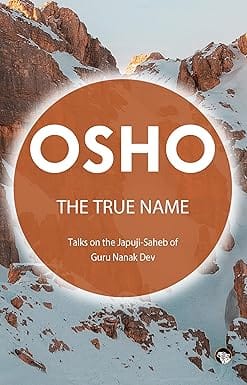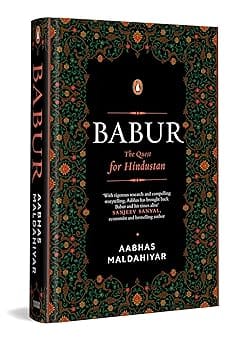WELCOME TO MIDLAND BOOK SHOP!
SHOP FOR
- Non-ficton
- Non-ficton
- Contemporary Fiction
- Contemporary Fiction
- Children
- Children
- Comics & Graphic Novels
- Comics & Graphic Novels
- Non-Fiction
- Non-Fiction
- Fiction
- Fiction
Shop No.20, Aurobindo Palace Market, Hauz Khas, Near Church +91 9818282497 | 011 26867121 110016 New Delhi IN
Midland The Book Shop ™
Shop No.20, Aurobindo Palace Market, Hauz Khas, Near Church +91 9818282497 | 011 26867121 New Delhi, IN
+919871604786 https://www.midlandbookshop.com/s/607fe93d7eafcac1f2c73ea4/677cda367903fd013d69b606/without-tag-line-480x480.png" [email protected]9789354350368 63076877d4f150007d7d6ab6 Kautilyanomics For Modern Times https://www.midlandbookshop.com/s/607fe93d7eafcac1f2c73ea4/63076878d4f150007d7d6acb/41nfgx4fc5l-_sx308_bo1-204-203-200_.jpg 9789354350368
India was an economic power to reckon with until its economic decline in the 18th century. What explains this long period of prosperity? The answer might lie in a framework of social and economic thought that lies buried in our ancient heritage, says Sriram Balasubramanian, of which Kautilya’s Arthashastra is a major example. Kautilyanomics for Modern Times seeks to do three things—first, to provide a structure and a context for Kautilya’s economic thoughts; second, to examine his work’s relevance today; and third, to do it in a way that a lay reader can follow and grasp easily. Kautilya’s thought is mainly articulated through the prism of dharmic capitalism and its components—some examples include his views on global economic outlook, state-market dynamics, and sustainable growth through observance of environmental, societal and familial responsibilities. Fathoming India’s rich economic and philosophical heritage and making use of it, Balasubramanian argues, would prove to be a great asset in India’s/the country’s/the nation’s ascent again.
Review
Two millennia after they were written, Kautilya’s ideas continue to inspire debate on the form and nature of governance. The historical context may have changed, but many of Kautilya’s arguments still ring true as policymakers face the same trade-offs to this day. Sriram’s excellent book brings these ideas alive and lucidly reintroduces them to a 21st-century audience. - SANJEEV SANYAL Economist, author and former principal economic adviser, Government of India
Chanakya is a much-cited but little-read author. He is also frequently, but in my view mistakenly, thought to have written a treatise in economics like Adam Smith did. Sriram Balasubramanian has avoided these traps and written the book concentrating on the Arthashastra. We are all in debt to him for that generous scholarly effort. DR MEGHNAD DESAI Emeritus professor of economics, London School of Economics
There is a burst of new research and writings on forgotten and undermined historical figures in India these days. In this vein, Sriram Balasubramanian’s well-researched book not only attempts to quench the insatiable thirst for information on Kautilya but also provides accessible insights that are relevant for contemporary Indian policymaking. He explains why Kautilya is more relevant today as the father of modern economic thinking. A must-read book for everyone, not just limited to policymakers and intellectuals. SHEKHAR GUPTA Journalist and founder of The Print
The ongoing churn in economics includes calls to pay more attention to styles of thinking that have come from outside the dominant Western paradigms. This insightful book by Sriram Balasubramanian on Kautilya’s Arthashastra deserves to be read widely as it lucidly explains the complex interactions between markets, states, institutions and social norms in any economy. Balasubramanian not only describes the context in which one of the first treatises in economics was written but also vividly reinterprets and connects economics with ethics for our times through his idea of dharmic capitalism. DR NIRANJAN RAJADHYAKSHA Columnist, CEO and senior fellow, Artha India
Chanakya is a much-cited but little-read author. He is also frequently, but in my view mistakenly, thought to have written a treatise in economics like Adam Smith did. Sriram Balasubramanian has avoided these traps and written the book concentrating on the Arthashastra. We are all in debt to him for that generous scholarly effort. DR MEGHNAD DESAI Emeritus professor of economics, London School of Economics
There is a burst of new research and writings on forgotten and undermined historical figures in India these days. In this vein, Sriram Balasubramanian’s well-researched book not only attempts to quench the insatiable thirst for information on Kautilya but also provides accessible insights that are relevant for contemporary Indian policymaking. He explains why Kautilya is more relevant today as the father of modern economic thinking. A must-read book for everyone, not just limited to policymakers and intellectuals. SHEKHAR GUPTA Journalist and founder of The Print
The ongoing churn in economics includes calls to pay more attention to styles of thinking that have come from outside the dominant Western paradigms. This insightful book by Sriram Balasubramanian on Kautilya’s Arthashastra deserves to be read widely as it lucidly explains the complex interactions between markets, states, institutions and social norms in any economy. Balasubramanian not only describes the context in which one of the first treatises in economics was written but also vividly reinterprets and connects economics with ethics for our times through his idea of dharmic capitalism. DR NIRANJAN RAJADHYAKSHA Columnist, CEO and senior fellow, Artha India
About the Author
Sriram Balasubramanian is an economist and author based at one of the leading international monetary institutions in the world. His key areas of interest include global macroeconomics, economic history, socio-economic trends in emerging markets and Indic/dharmic culture. He has contributed to many international publications such as Foreign Policy, Wall Street Journal, VoxEU and CNBC-TV18 as an independent columnist and commentator. He is the author of Jamba: The Joint Family (shortlisted for the Third Annual IAAC Literary Festival organised by the Indo-American Arts Council) and The Wizards. Balasubramanian has also been featured in podcasts by Bloomberg and interviewed by newspapers, including The Hindu and The New Indian Express, for his books and research work. He was an international junior chess player and is an alumnus of Columbia University, New York.
in stockINR 479
1 1
Email ID already exists!
Your Current password is incorrect
Password Updated Successfully
Thanks for your Feedback
- Home
- Non-Fiction
- Kautilyanomics For Modern Times
Kautilyanomics For Modern Times
ISBN: 9789354350368
₹479
₹599 (20% OFF)SIZE GUIDE
Sold By: Hauz Khas - Aurobindo Market
Details
- ISBN: 9789354350368
- Author: Sriram Balasubramanian
- Publisher: Bloomsbury
- Pages: 292
- Format: Paperback
Book Description
India was an economic power to reckon with until its economic decline in the 18th century. What explains this long period of prosperity? The answer might lie in a framework of social and economic thought that lies buried in our ancient heritage, says Sriram Balasubramanian, of which Kautilya’s Arthashastra is a major example. Kautilyanomics for Modern Times seeks to do three things—first, to provide a structure and a context for Kautilya’s economic thoughts; second, to examine his work’s relevance today; and third, to do it in a way that a lay reader can follow and grasp easily. Kautilya’s thought is mainly articulated through the prism of dharmic capitalism and its components—some examples include his views on global economic outlook, state-market dynamics, and sustainable growth through observance of environmental, societal and familial responsibilities. Fathoming India’s rich economic and philosophical heritage and making use of it, Balasubramanian argues, would prove to be a great asset in India’s/the country’s/the nation’s ascent again.
Review
Two millennia after they were written, Kautilya’s ideas continue to inspire debate on the form and nature of governance. The historical context may have changed, but many of Kautilya’s arguments still ring true as policymakers face the same trade-offs to this day. Sriram’s excellent book brings these ideas alive and lucidly reintroduces them to a 21st-century audience. - SANJEEV SANYAL Economist, author and former principal economic adviser, Government of India
Chanakya is a much-cited but little-read author. He is also frequently, but in my view mistakenly, thought to have written a treatise in economics like Adam Smith did. Sriram Balasubramanian has avoided these traps and written the book concentrating on the Arthashastra. We are all in debt to him for that generous scholarly effort. DR MEGHNAD DESAI Emeritus professor of economics, London School of Economics
There is a burst of new research and writings on forgotten and undermined historical figures in India these days. In this vein, Sriram Balasubramanian’s well-researched book not only attempts to quench the insatiable thirst for information on Kautilya but also provides accessible insights that are relevant for contemporary Indian policymaking. He explains why Kautilya is more relevant today as the father of modern economic thinking. A must-read book for everyone, not just limited to policymakers and intellectuals. SHEKHAR GUPTA Journalist and founder of The Print
The ongoing churn in economics includes calls to pay more attention to styles of thinking that have come from outside the dominant Western paradigms. This insightful book by Sriram Balasubramanian on Kautilya’s Arthashastra deserves to be read widely as it lucidly explains the complex interactions between markets, states, institutions and social norms in any economy. Balasubramanian not only describes the context in which one of the first treatises in economics was written but also vividly reinterprets and connects economics with ethics for our times through his idea of dharmic capitalism. DR NIRANJAN RAJADHYAKSHA Columnist, CEO and senior fellow, Artha India
Chanakya is a much-cited but little-read author. He is also frequently, but in my view mistakenly, thought to have written a treatise in economics like Adam Smith did. Sriram Balasubramanian has avoided these traps and written the book concentrating on the Arthashastra. We are all in debt to him for that generous scholarly effort. DR MEGHNAD DESAI Emeritus professor of economics, London School of Economics
There is a burst of new research and writings on forgotten and undermined historical figures in India these days. In this vein, Sriram Balasubramanian’s well-researched book not only attempts to quench the insatiable thirst for information on Kautilya but also provides accessible insights that are relevant for contemporary Indian policymaking. He explains why Kautilya is more relevant today as the father of modern economic thinking. A must-read book for everyone, not just limited to policymakers and intellectuals. SHEKHAR GUPTA Journalist and founder of The Print
The ongoing churn in economics includes calls to pay more attention to styles of thinking that have come from outside the dominant Western paradigms. This insightful book by Sriram Balasubramanian on Kautilya’s Arthashastra deserves to be read widely as it lucidly explains the complex interactions between markets, states, institutions and social norms in any economy. Balasubramanian not only describes the context in which one of the first treatises in economics was written but also vividly reinterprets and connects economics with ethics for our times through his idea of dharmic capitalism. DR NIRANJAN RAJADHYAKSHA Columnist, CEO and senior fellow, Artha India
About the Author
Sriram Balasubramanian is an economist and author based at one of the leading international monetary institutions in the world. His key areas of interest include global macroeconomics, economic history, socio-economic trends in emerging markets and Indic/dharmic culture. He has contributed to many international publications such as Foreign Policy, Wall Street Journal, VoxEU and CNBC-TV18 as an independent columnist and commentator. He is the author of Jamba: The Joint Family (shortlisted for the Third Annual IAAC Literary Festival organised by the Indo-American Arts Council) and The Wizards. Balasubramanian has also been featured in podcasts by Bloomberg and interviewed by newspapers, including The Hindu and The New Indian Express, for his books and research work. He was an international junior chess player and is an alumnus of Columbia University, New York.
User reviews
NEWSLETTER
Subscribe to get Email Updates!
Thanks for subscribing.
Your response has been recorded.

India's Iconic & Independent Book Store offering a vast selection of books across a variety of genres Since 1978.
"We Believe In The Power of Books" Our mission is to make books accessible to everyone, and to cultivate a culture of reading and learning. We strive to provide a wide range of books, from classic literature, sci-fi and fantasy, to graphic novels, biographies and self-help books, so that everyone can find something to read.
Whether you’re looking for your next great read, a gift for someone special, or just browsing, Midland is here to make your book-buying experience easy and enjoyable.
We are shipping pan India and across the world.
For Bulk Order / Corporate Gifting
 +91 9818282497 |
+91 9818282497 |  [email protected]
[email protected]
Click To Know More
INFORMATION
QUICK LINKS
ADDRESS
Midland Book Shop - Hauz Khas
Shop No.20, Aurobindo Palace Market, Near Church, New Delhi
Shop No.20, Aurobindo Palace Market, Near Church, New Delhi

